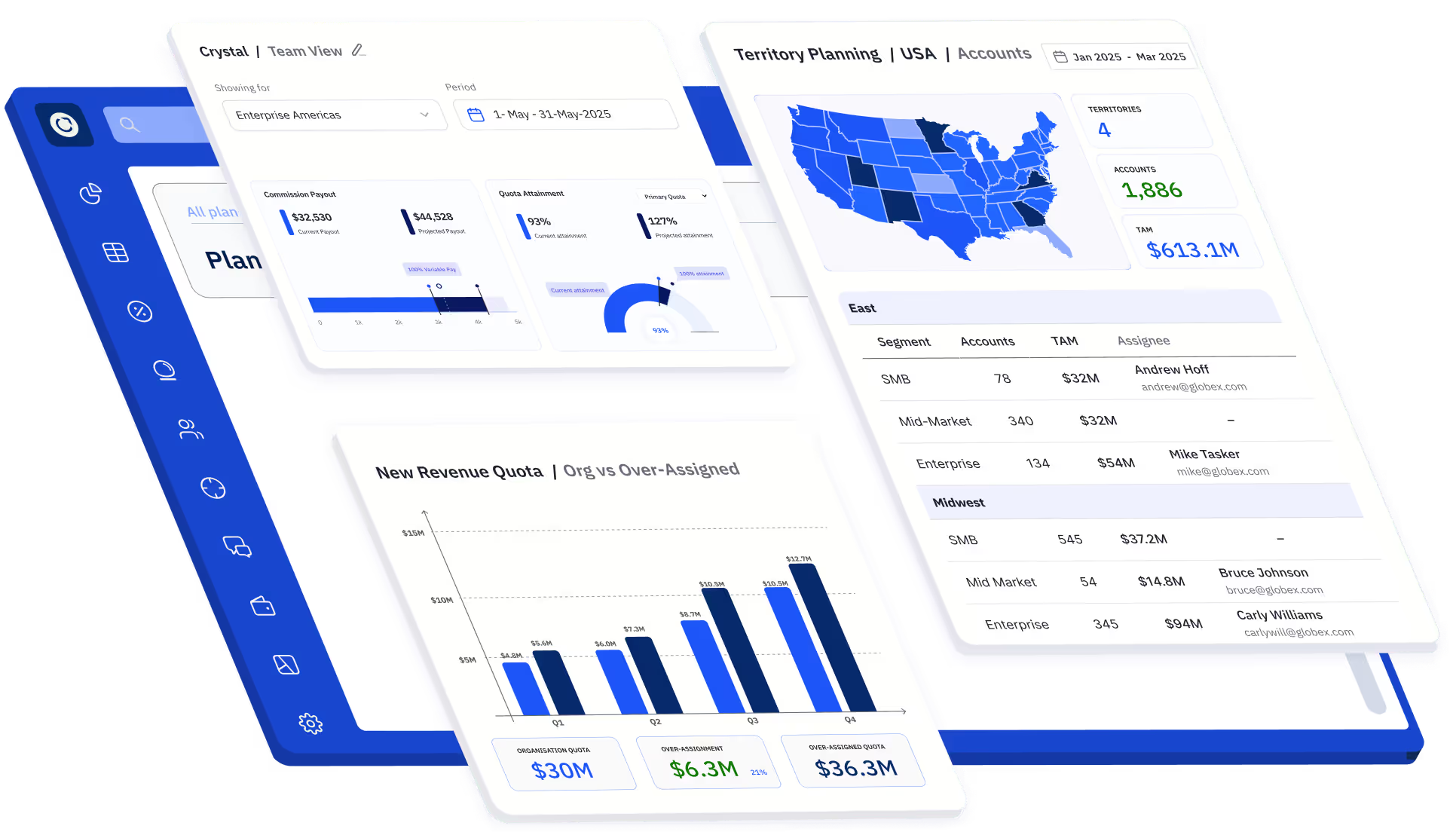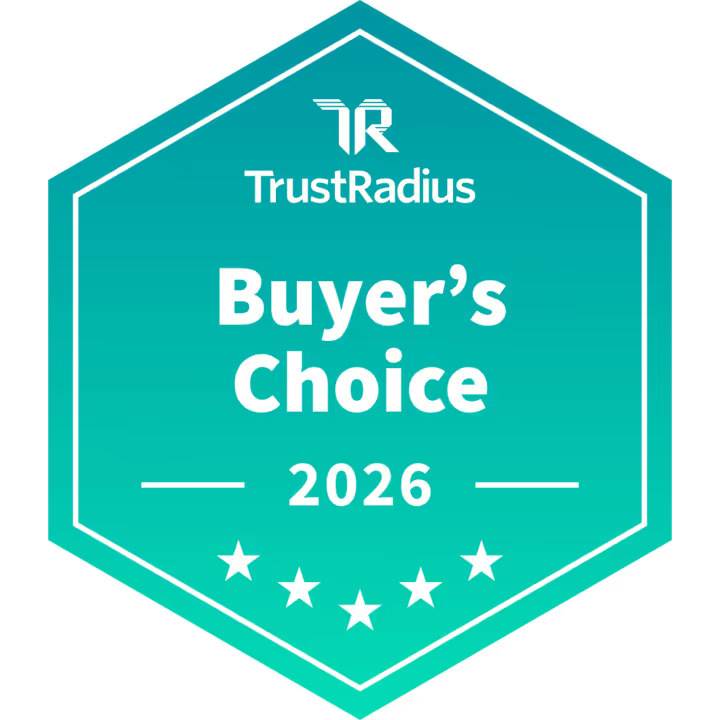Best Sales Commission Software forPublicly Traded Companies in 2025

Choosing the best sales commission software for publicly traded companies isn’t just about faster payouts. It’s about aligning revenue teams around growth. Unlike private or smaller firms, public companies operate under strict compliance and financial controls, with complex sales structures and high stakeholder scrutiny.
That makes commissions significantly more complex: cross-border deals may need multi-currency logic, SOX compliance must be maintained, and payout errors often require full audit trails.
What do we mean by Publicly Traded Companies?
When we say publicly traded companies, we mean organizations whose shares are listed on a public stock exchange. These are often called public companies or listed companies and must comply with strict financial, regulatory, and reporting standards.
Why Publicly Traded Companies
need specialized commission software
Regulatory pressure and global scale make managing commissions uniquely difficult for publicly traded companies. That reality introduces four hard problems:
Audit and Compliance
Every commission calculation must be audit-ready and follow rules like SOX and ASC 606. Any gaps create risk for restatements or regulatory action.
Complex Compensation Plans
These companies use multi-tiered, global comp plans, often with overlays and split credits. This complexity creates room for errors and disputes in sales payouts.


Change Management
Publicly traded companies adjust plans after quarterly reviews or market shifts. Frequent plan changes increase admin workload and risk calculation mistakes.
Data Integration
Commission data comes from CRM, ERP, HRIS, and finance systems. Mismatched data or missed updates can delay payouts or break audit trails.
Every month without specialized commission software means missed accuracy, wasted hours, and lost trust. In public companies, that’s growth you cannot afford to lose.
Key Features to Look for in Sales Commission
Software for Publicly Traded Companies
Full audit and compliance support
Audit-ready reporting with automated trails is essential for SOX, ASC 606, and public company governance requirements. Avoids costly manual reviews and risk.
Advanced multi-currency capabilities
Handles payouts, quotas, and reporting in different currencies. Supports global sales teams and accurate payroll for international public companies.
Flexible plan modeling and change control
Enables complex plans, overlays, and quick updates. Makes plan changes after quarterly earnings or board input manageable and compliant.
Deep integrations with enterprise systems
Connects seamlessly with CRM, ERP, HR, and payroll platforms. Reduces manual data reconciliation, supporting real-time payout accuracy.
Transparent dashboards for every role
Delivers real-time attainment, earnings, and payout insights to reps, managers, and finance. Prevents disputes and builds trust.
Automated dispute and exception workflows
Tracks, resolves, and documents commission exceptions. Reduces escalations and protects against legal or compliance issues.
Global payout and tax compliance
Supports local tax, payroll, and labor laws. Essential for public companies operating in multiple regions.
Scenario modeling and forecast analytics
Lets finance and sales leaders run “what-if” scenarios, predict commission costs, and test plan changes before rollout.
The right commission software doesn’t just process payouts—it aligns public company teams around growth and scale.
Why Everstage is a Strong Choice for Publicly Traded Companies
Everstage isn’t just built for publicly traded companies, it’s proven by public company leaders. Publicly traded companies like Paychex, Amwell, and Alight Solutions rely on Everstage to reduce disputes, speed up payroll, and give reps real-time visibility. With deep CRM, billing, and ERP integrations, it delivers the accuracy, transparency, and scale that listed businesses need to grow without commission bottlenecks.
- Close payroll cycles in days, not weeks
- Slash commission disputes and finance escalations
- Give reps instant clarity on earnings
- Scale comp plans without adding headcount

Everstage is trusted by publicly traded companies across all sizes












What customers say
about Everstage
How to Choose the Right Commission Software for Publicly Traded Companies
Selecting commission software cannot be reduced to a feature list. Publicly traded company teams need to weigh audit readiness, global payout complexity, plan flexibility, deep system integrations, and real-time transparency. Teams also need to balance these priorities against available bandwidth and future growth. Make the wrong choice, and you are back in spreadsheets within a year.
We have analyzed the four common approaches: spreadsheets, custom builds, legacy tools, and modern platforms. Each has its strengths and weaknesses, but only a modern, dedicated platform delivers the audit, scale, and control that public companies require. Most importantly, look for scalable data infrastructure, admin-friendly plan design, real-time analytics, payee transparency, and a trusted partner that supports evolving business needs.

I’m about to evaluate commission software
Get the Buyer’s Guide to Sales Compensation Software. This is a step-by-step framework with publicly traded company-specific checklists to help you cut through vendor claims and choose with confidence.

I’m already evaluating multiple vendors
Grab this exclusive RFP template to compare solutions side by side. Share it with vendors or fill it yourself to see which platform fits your publicly traded company requirements best.
The Future of Sales Compensation in Publicly Traded Companies
Sales compensation for publicly traded companies is evolving quickly. Global expansion, stricter regulations, and the rise of new sales models such as usage-based or recurring revenue are transforming how public companies reward their teams. Leadership faces growing pressure for transparency, audit accuracy, and fast responses to changing business priorities or market shifts. Compliance requirements like SOX and ASC 606 continue to become more demanding, especially for companies operating across multiple countries.
Traditional tools or spreadsheets cannot keep up with this level of complexity. Modern commission software must enable automated controls, deliver real-time insights, and provide audit trails that hold up during audits. You can expect deeper integration with enterprise finance and HR systems, along with AI-powered scenario modeling and error detection to catch mistakes before they impact payroll. These platforms help leaders test new plans, optimize compensation globally, and ensure every payout is compliant as the business grows.
Everstage is leading this change by reshaping sales performance management for publicly traded companies. Organizations gain the accuracy, transparency, and speed they need to scale sales performance in an AI-driven world.
Book a demo to see how Everstage can help automate sales commissions for your publicly traded company 👉
FAQ About Commission Software for Publicly Traded Companies
What features should publicly traded companies prioritize when choosing sales commission software?
Publicly traded companies should prioritize audit-ready reporting, SOX and ASC 606 compliance, global payout support, deep enterprise integrations, and automated dispute management. Real-time dashboards and scenario modeling are also essential.
How do companies avoid compliance errors in global commission payouts?
The best software provides automated controls for tax, currency, and local regulations. This ensures every payout is accurate and audit-ready, even across multiple countries.
Can AI improve commission accuracy and reduce disputes in publicly traded company sales teams?
Yes. For example, Everstage’s AI-native platform can detect anomalies, forecast attainment, and answer rep questions instantly within Slack or CRM. This reduces RevOps tickets and builds trust in commission data.
What’s the best way for publicly traded company teams to compare commission software vendors fairly?
Run a “shadow payout” using last quarter’s data in at least two platforms. Comparing actual results highlights gaps in integrations, rules logic, and dispute handling. Everstage supports a no-cost proof-of-concept using your historical data to show how the product fits public company requirements.
How do you ensure compliance with ASC 606 in sales commission calculations?
Choose a platform that automatically aligns payout timing and calculations with revenue recognition schedules. This avoids manual errors and keeps your accounting team audit-ready.
How do publicly traded companies ensure commission software scales from hundreds to thousands of reps?
Look for features such as version control, territory management, and reliable performance at scale. The right platform should grow with your headcount and product lines, without constant admin rework. Everstage recently launched our Planning product to help organizations manage territories, quotas, and capacity. This lets teams adapt faster and drive better outcomes.








.webp)










